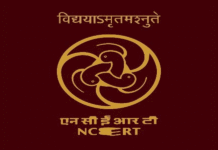Sri Vijaya Puram/New Delhi, June 26: The Union Budget 2025-26 has proposed a significant revamp of India’s maritime infrastructure, with measures that could have a direct bearing on the development of the Andaman and Nicobar Islands. Among the key announcements is the creation of a ₹25,000 crore Maritime Development Fund designed to provide distributed financial support and promote competition in the sector. According to the budget document, this fund will see up to 49 per cent contribution from the central government, while the remaining corpus will be mobilized from ports and private sector stakeholders.
To complement this, the government has announced a comprehensive overhaul of the Shipbuilding Financial Assistance Policy, aimed at addressing existing cost disadvantages in the sector. The updated policy will include Credit Notes for shipbreaking in Indian yards, thereby supporting the circular economy model. In addition, Shipbuilding Clusters will be promoted to expand the range, categories, and capacities of vessels built domestically.
These measures are particularly relevant to island territories like the Andaman and Nicobar Islands, which depend heavily on maritime logistics for connectivity, cargo transport, and essential services. The development of shipbuilding and ship maintenance infrastructure could significantly strengthen the archipelago’s logistical self-reliance.
Further support for the maritime sector comes in the form of customs duty exemptions. The Union Budget has extended the Basic Customs Duty (BCD) exemption on raw materials, components, consumables, and parts used for shipbuilding by another ten years. The same exemption will also continue for shipbreaking activities. This long-term fiscal relief is expected to reduce costs and promote investment in shipbuilding-related industries across India, including remote maritime zones like the Andaman.
In addition to coastal shipping, the budget expands support for inland water transport. The Tonnage Tax Scheme, which previously applied only to ocean-going vessels, has now been extended to inland vessels registered under the Indian Vessels Act, 2021. This move will provide tax benefits and potentially incentivize the development of more efficient inter-island and coastal transport services, an area of significant importance to the Andaman and Nicobar Islands, where inter-island mobility remains a logistical challenge.
Beyond maritime infrastructure, the Union Budget also emphasizes strengthening national and regional connectivity through air travel. The government has announced the launch of a modified UDAN – Regional Connectivity Scheme. Although the document specifically mentions the expansion of greenfield airports in Bihar, the broader goal of enhancing regional air infrastructure may also benefit the Andaman and Nicobar Islands, which are heavily dependent on air connectivity for passenger movement, medical emergencies, and supply chain support.
As part of the government’s focus on infrastructure, the budget outlines a three-year pipeline of projects to be implemented under the Public-Private Partnership (PPP) mode. States and Union Territories will be eligible for a ₹1.5 lakh crore corpus of 50-year interest-free loans, aimed at capital expenditure and incentivising reform-linked development. This opens a window for the Andaman and Nicobar administration to propose and implement long-pending maritime and infrastructure projects in partnership with the private sector.
Overall, the Union Budget 2025-26 highlights a strategic shift towards bolstering India’s maritime economy with implications for remote and strategically vital territories like the Andaman and Nicobar Islands. With dedicated financial assistance, policy incentives, and infrastructure-focused reforms, the islands are now better positioned to attract investment, enhance connectivity, and contribute more actively to India’s vision of Viksit Bharat@2047.





